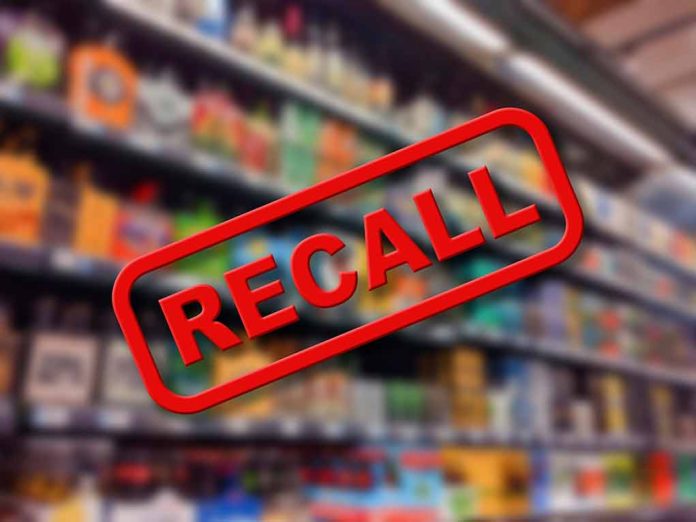
Major FDA recall targets 40 generic medications found in American medicine cabinets nationwide as manufacturing deficiencies in India raise serious concerns over drug safety and contamination risks.
Key Takeaways
- Glenmark Pharmaceuticals has issued a nationwide recall of approximately 40 generic medications, including versions of common drugs like Advil, Tylenol, Motrin, and Zyrtec.
- The FDA classified this as a Class II recall, indicating potential “temporary or medically reversible adverse health consequences” for consumers using these medications.
- The recall stems from serious manufacturing deficiencies at a facility in India, including inadequate contamination control procedures and insufficient quality control measures.
- Affected medications were sold at major retailers including Walmart, Target, and Costco, treating conditions ranging from basic pain relief to seizures, high blood pressure, and diabetes.
- Patients taking recalled prescription medications should not stop taking them without first consulting their healthcare provider about alternatives.
Widespread Recall Affects Common Medications
The FDA has taken action against Glenmark Pharmaceuticals, initiating a recall of nearly 40 generic medications that millions of Americans rely on daily. The recall includes generic versions of widely used medications such as Advil (ibuprofen), Tylenol (acetaminophen), Motrin, and Zyrtec (cetirizine). This extensive recall encompasses both prescription and over-the-counter medications used to treat a broad spectrum of conditions, including basic aches and pains, seizures, high blood pressure, high cholesterol, atrial fibrillation, and high blood sugar.
“The recall, which also includes prescription drugs, was initiated over concerns the products failed to meet current good manufacturing standards, according to the Food and Drug Administration (FDA),” said the Food and Drug Administration (FDA).
The recall was initiated on March 13 and officially classified as a Class II risk by the FDA on April 8. According to regulatory documents, the medications were distributed nationwide, primarily through pharmacies, with some products also sold through major retailers including Amazon, Walmart, Target, and Costco. While no specific injuries or adverse events have been reported in connection to the recalled drugs so far, the potential risk has prompted swift action from regulators.
Manufacturing Deficiencies Raise Serious Concerns
At the heart of this extensive recall are significant deviations from current good manufacturing practices (CGMP) at a Glenmark facility in India. FDA investigators found that the company “failed to implement adequate contamination control procedures” at their manufacturing facility. This represents a serious breach of the quality control standards that Americans expect from pharmaceutical companies, especially those producing medications that millions of citizens depend on for their health and well-being.
“Adherence to the CGMP regulations assures the identity, strength, quality, and purity of drug products by requiring that manufacturers of medications adequately control manufacturing operations,” said the FDA.
The FDA elaborated on the importance of these standards, noting that proper manufacturing practices “include establishing strong quality management systems, obtaining appropriate quality raw materials, establishing robust operating procedures, detecting and investigating product quality deviations, and maintaining reliable testing laboratories.” The agency found troubling issues including lack of cross-contamination prevention, improper batch review processes, and insufficient quality control measures at the Glenmark facility.
What Consumers Should Do
The FDA has classified this recall as Class II, which indicates “a situation in which use of, or exposure to, a violative product may cause temporary or medically reversible adverse health consequences or where the probability of serious adverse health consequences is remote.” While this classification suggests moderate risk, consumers should take this recall seriously, particularly given the range of medications affected and the potential for contamination issues that could lead to adverse effects.
Consumers currently taking any of the recalled prescription medications should not discontinue use without first consulting their healthcare provider. Abruptly stopping certain medications can pose greater risks than continuing them temporarily. Patients should contact their pharmacy to determine if their specific medication is affected by the recall, and work with their doctor to find suitable alternatives if necessary. For recalled over-the-counter medications, consumers should stop using them immediately and properly dispose of them.
List of Affected Medications
The extensive recall includes numerous medications treating a wide range of conditions. Among the recalled drugs are Fenofibrate (for high cholesterol), Propafenone (for irregular heartbeat), Gabapentin (for seizures and nerve pain), Metformin (for diabetes), Pravastatin (for high cholesterol), Rosuvastatin (for high cholesterol), Diltiazem (for high blood pressure), Naproxen (for pain and inflammation), Acetaminophen and ibuprofen (for pain and fever), and Cetirizine (for allergies). The full list encompasses approximately 40 different generic medications.
This widespread recall highlights ongoing concerns about quality control in overseas pharmaceutical manufacturing facilities that produce medications for the American market. The FDA continues to monitor the situation, and while no consumer advisory has been issued yet, legal experts are watching for potential class action lawsuits that may emerge from this significant drug safety incident. President Trump has consistently emphasized the importance of bringing pharmaceutical manufacturing back to America to ensure higher quality standards and protect public health.




